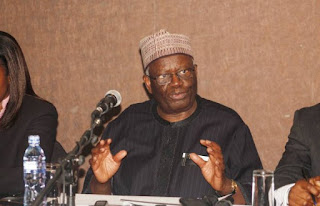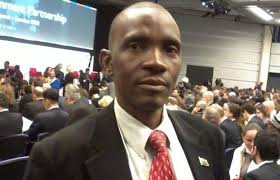COMMONWEALTH STEPS OUT OF ZAMBIA’S POLITICAL DIALOGUE PROCESS
 |
| Prof Gambari |
In August, 2017 Commonwealth
Secretary General Patricia Scotland facilitated the release from prison of Zambia’s
main opposition leader Hakainde Hichilema who was charged with treason for
allegedly obstructing a presidential motorcade. She proceeded to appoint Professor
Ibrahim Gambari as her special envoy to
facilitate a national political dialogue in Zambia. The purpose of the dialogue
was to address national challenges and to enable the Republic of Zambia and its
people to uphold its reputation for democracy, the rule of law and peace.
Addressing the press after his
recent visit to Zambia Gambari said:
“Above all, there is a shared
commitment to open-minded, to act with good faith and to ensure that the
process is truly Zambian led and owned. We have talked about talks for long
enough. Now is the time for dialogue to start. The foundations of the dialogue
process are a shared respect for the rule of law, human rights and fundamental
freedoms and respect for one another.”
On 10th March, 2018 Prof
Gambari announced the formation of a steering committee comprised of eminent
and respected Zambians which will lead and direct the dialogue process.
“As I depart, I can safely say that Zambians
have committed themselves to a national political dialogue including the
following: peace, respect for the separation of powers between the three
branches of government, an independent electoral process, end to political
violence, the right to freedom of expression, an end to tribalism, regionalism,
and all forms of discrimination, good governance,” Prof Gambari said.
 |
| Hichilema chats with his Vice President Geoffrey Mwamba in court |
President Lungu through his
spokesperson Amos Chanda announced that he was eagerly looking forward to
speedy talks and was committed to open and sincere dialogue to foster national
cohesion.
Some elements close to the ruling
indicate that the ruling party was unhappy with an eternal facilitated dialogue
process arguing that Zambians should be mature enough to solve their ow political
disputes as was the case just very recently in Kenya.
Some public sentiments are that if
the Commonwealth sent the envoy to Zambia in order to facilitate constitutional
reforms, electoral and institutional reforms, it would not be a fruitful
process because those issues are better known by the people of Zambia.
There are also fears that the
dialogue process may result in a postmortem of the 2016 general elections which
the ruling party won by a disputed small margin. Their election petition also
fell off in the Constitution Court on a technicality of lapse of time. The
grievances arising from that election are still top of the agenda as far as the
main opposition is concerned, hence they seem to be seeking closure.
The local steering committee will
be formally launched on March 26, 2018 in Lusaka. Stakeholders including
members of the international community will be invited to witness the event.
Furthermore, the process will
include the establishment of a working group, including three sub-groups which
will examine the issues of Constitutional and institutional reforms, electoral
reforms and tolerance and civility in public life.
Upon his release from prison UPND
leader Hakainde Hichilema reiterated his commitment to national building and
dialogue stressing that he was not bitter and angry about the humiliation and
torture he suffered from the PF government.
“Africa does not need conflict [but] what
Africa needs, Zambia included, is accelerated economic and social development.
So for me, would I say I’ll not dialogue because I’m unhappy with this thing
(his incarceration)? I wouldn’t say that! I’ll bring that issue which I’m
not happy about and put it on the dialogue table and I think that’s the most
civilised way of doing things. If we are saying I disagree with you and you
also disagree with me and so, we cannot resolve our conflicts, then we’ve lost
the sense of humanity because amongst the creatures God made, the one with
intellect is a human being. That intellect must be used to resolve conflicts
because if you don’t want to resolve conflicts through dialogue, the next thing
basically is negative things, including violence. [But] do we want violence?
Absolutely no! Yes, we have problems in our country but we can resolve them,
Hichilema said.

Comments
Post a Comment